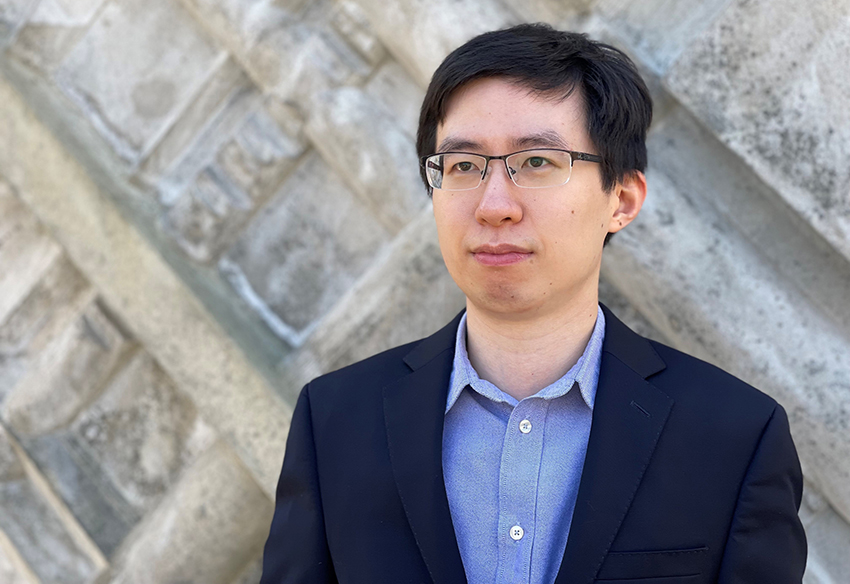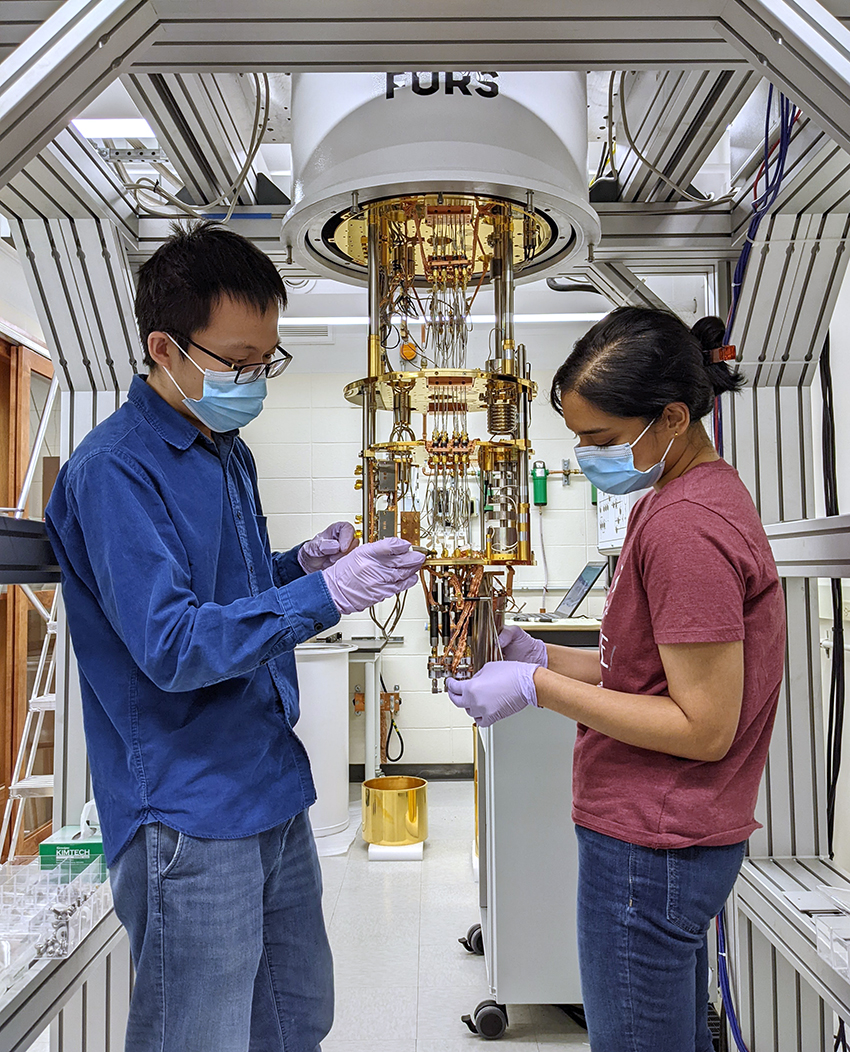Alex Ruichao Ma receives NSF CAREER Award to pursue designer quantum materials
2021-12-22

One of the grand challenges in modern physics is understanding interactions and collective quantum effects between constituent particles in materials. Better understanding of materials with unique quantum properties are critical for advanced technological applications, including for building future quantum devices such as quantum computers.
The National Science Foundation (NSF) has awarded Dr. Alex Ruichao Ma, Assistant Professor of Physics, the CAREER Award to pursue research aimed at engineering and understanding novel quantum materials in superconducting circuits. The CAREER Award is the foundation’s most prestigious award for junior faculty.
“We are creating ‘designer materials’ that are made with light instead of the atoms or molecules that make up conventional materials in our everyday life.” says Ma, “We would like to design and understand quantum materials with completely new properties that are relevant for future technologies.”
Superconducting circuits are constructed with materials that have zero electrical resistance when cooled to ultra-low temperatures. The effects of quantum mechanics - laws of physics that govern the microscopic world - can manifest macroscopically in superconducting circuits called “qubits.”
In such qubits, information about their quantum state is stored in individual microwave photons, the smallest amount of light allowed by quantum mechanics. By designing complex circuits and qubits, many microwave photons can be made to interact with each other and form new phases of matter never discovered before.
“In our lab, we are creating synthetic materials assembled from ‘bottom-up’ using individual microwave photons in superconducting quantum circuits,” says Ma. “We leverage the precise yet flexible experimental control of quantum circuits and their interactions, to engineer and realize new types of quantum materials and explore their novel properties.”
Quantum mechanical effects, and the many-body quantum phases scientists seek, are usually very fragile and can be easily destroyed or masked by even the smallest amounts of dissipation or disturbances from the environment. Therefore, physicists usually try to build quantum systems which are as isolated from their environments as possible. But noise and dissipation are often unavoidable in real would applications of quantum technologies.
According to Ma, “in this project, we are developing new tools to turn the detrimental dissipation into a useful resource – we are trying to achieve the very counter-intuitive: to create, manipulate and even protect quantum phases of matter using noise!”
Ma will receive $628,616 over a five-year period for his project, “Synthetic Quantum Materials in Superconducting Circuits”, under NSF Award DMR-2145323. The project will develop efficient protocols for creating and controlling synthetic quantum materials and their properties, and to investigate the microscopic dynamics of quantum materials in open driven-dissipative settings. The results will provide insights on material discovery and design for applications in quantum information science and engineering.

Important elements of this award are education and outreach. Ma’s research lab will provide hands-on training in quantum research for a diverse group of undergraduate and graduate students. These students will obtain skills including nanofabrication, cryogenics, and microwave measurements. During the five-year project, the project expects to support two graduate students and at least ten undergraduate students.
“Since my group started in Fall 2019, we have had eight undergraduate students taking part in cutting edge quantum research,” says Ma. “Almost all of them had received fellowships and financial support from Purdue or external sources. I will continue to mentor and support undergraduate researchers, especially those from underrepresented groups. As part of this NSF award, I will also be developing new accessible materials for quantum science education, and quantum-related outreach activities for K-12 students and teachers. Overall, the education and outreach activities are aimed at strengthening quantum awareness and quantum proficiency in a wide audience, and help contribute to a diverse workforce in quantum information science and engineering.”
According to Ma, an environment of collaborative research is one of the highlights of working at Purdue University.
"I am very excited to be a part of the vibrant quantum information science research scene here at Purdue,” he says. “We constantly benefit from discussions with other research groups in both the Department of Physics and Astronomy and the Purdue Quantum Science and Engineering Institute. For example, my group is collaborating with Prof. Yong Chen (Physics), Prof. Leonid Rokhinson (Physics), and Dr. Aaron Chou (Fermi Lab) on a project to probe electronic materials using superconducting qubits. This collaboration is part of the Quantum Science Center, funded by the Department of Energy and led by Oak Ridge National Laboratory. My lab also benefits greatly from the existing infrastructure and expertise at the Birck Nanotechnology Center.”
Contact and contributor: Alex Ruichao Ma
Writer: Cheryl Pierce